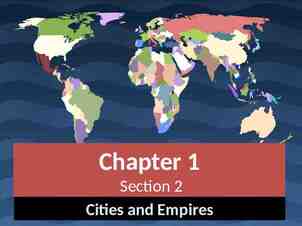TOOTH MORPHOLOGY PERMANENT DENTITION
21 Slides5.43 MB

TOOTH MORPHOLOGY PERMANENT DENTITION

PERMANENT MOLARS 12 molars 1st at 6 years old non-succedaneus Formed from 5 lobes (II,III can be from 4)

3 major cusps (max) 4th lobe forms minor cusp 5th lobe forms supplementary cusp: Max – DL Man – D Functional just – Carabelli – Max I molar

MAXILLARY 1 MOLAR Largest in the arch Broad MD and BL

Facial View 4 cup DB – sharper and longer B developmental groove divides 2 B cusps Cervical line – curved toward occlusal

M outline – straight from cervical to M contact Contact – middle & occlusal thirds D – outline convex, contact – center of the middle third

Lingual view Only lingual cusps can be seen ML cusp longer & larger Wide MD & BL M outline – straight, D - more convex L developmental groove from L becomes D oblique groove DL developmental groove

Carabelli tubercle, separated by ML groove from ML cusp 3 roots can be seen from L Roots twice long than crown L root longer THE MORE POSTERIOR - SMALLER TEETH - ROOTHS CLOSER TO CENTER LINE OF TOOTH

Mesial view View profile of Carabelli L crest – center of the mid third & B crest – cervical third Cervical line is slightly convex M

Distal view Crown tapered D Cervical line straighter D surface of the crown is convex with concavity at the root trunk D marginal ridge – shorter, seen on occlusion DB root – narrowest of all three

Occlusal view Crown wide M and L 4 functional cusps, one – non DL cusp – major (minor on II,III) Center fossa – major, B development groove – from central development pit M & D triangular – minor Oblique ridge – ML cusp tip to DB cusp tip

Grooves Facial Central M, D DL (oblique) ML groove (cusp Carabelli) M marginal D Marginal

Maxillary 2nd Molar Facial view Shorter cervicoocclusally and narrower MD than 1st molar B roots – same length, closer together DB root has no curvature MB root – greater curvature toward D at apex

Lingual view No cusp of Carabelli DL cusp is smaller than 1st molar

Mesial view Crown is shorter but BL similar to 1st molar Roots closer together

Distal view DB cusp – smaller More MB cusp can be seen

Occlusal view MD diameter – smaller BL diameter – similar More supplemental grooves and pits

Maxillary 3rd molar Varies shape, size Crown shorter, fused roots Occlusal outline heart-shaped DL cusp poorly formed Tendency to be impacted

Maxillary roots Trifurcation Palatal root – longest, DB – shortest All 3 roots visible from B view 2 B roots incline D, and D root straighter and curved M at the end A deep developmental groove runs between the bifurcation and cervical line

Characteristics of Maxillary roots Shorter to posterior Less divided to posterior More varied in shape, size, directions

Pulp cavity of Maxillary molar Pulp chamber, 3 main canals 1st molar can have 4 canals (2 in the MB root) Some 3rd molars can have 4 root canals One pulp for each cusp (4 in all)






